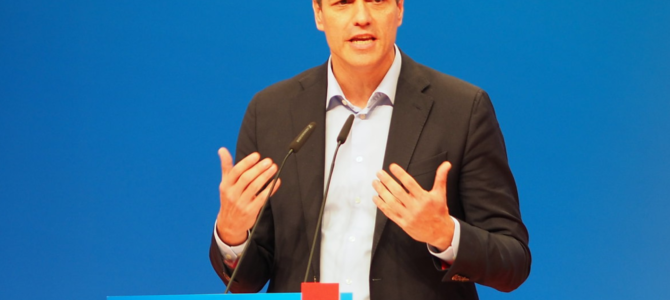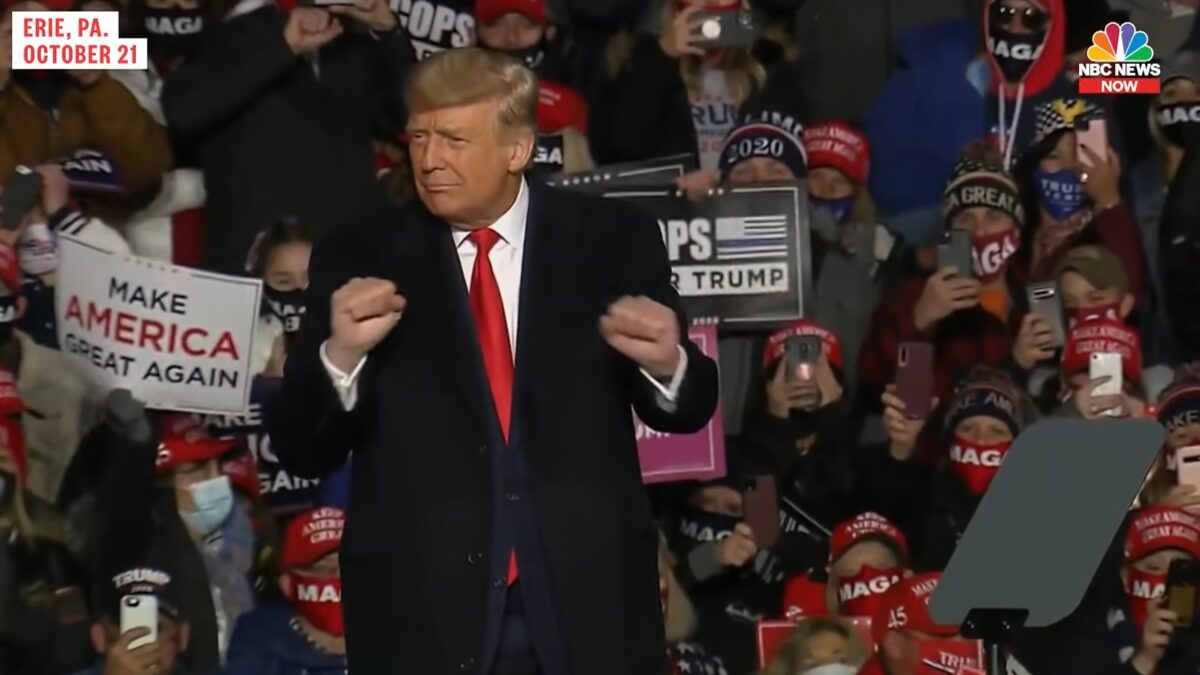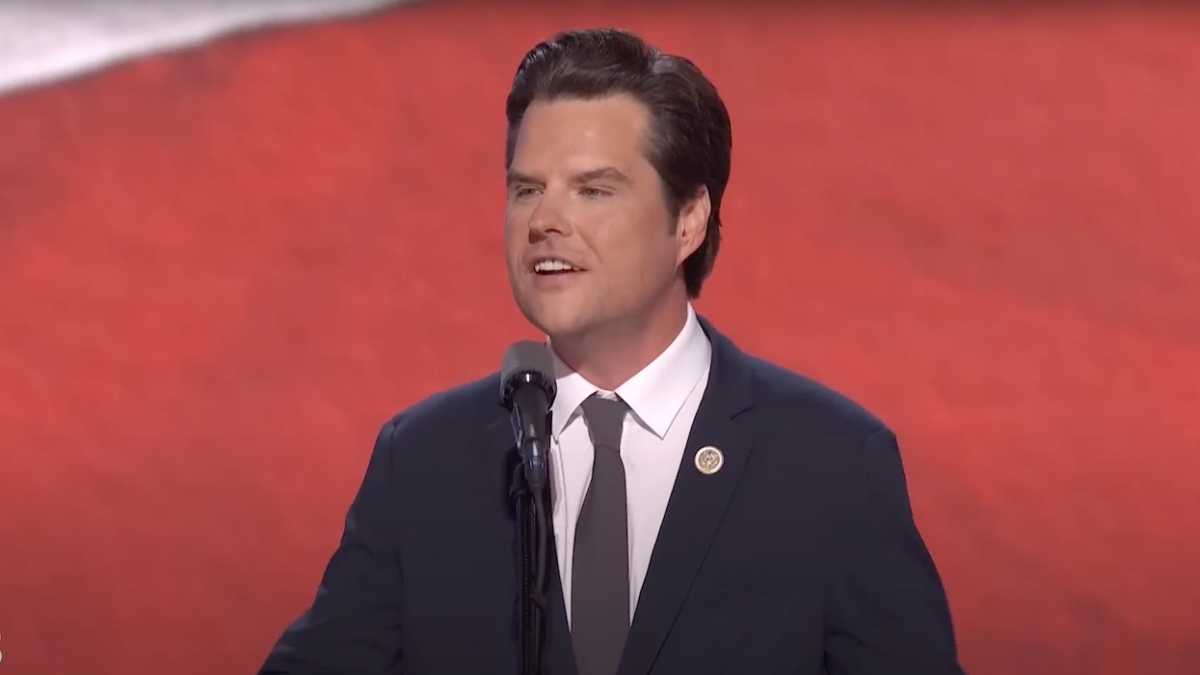
A friend writes to me from Miami: “What the h-ll is happening in Spain? Did Franco the dictator rise from the grave?” He had read the news in major European newspapers, which is a sure way to stay misinformed about current events in Spain.
We Spaniards have to vote again, for the fourth year running, this Nov. 10. We’re only supposed to have to do it once every four years, so afterwards, at least we should be able to spend our time criticizing the government on Twitter like the rest of the world. But in recent years, Spanish politicians have been unable to come to an agreement and form anything resembling a stable government. Pedro Sánchez, our current presidente, is mostly to blame.
Sánchez is a socialist, so the economy is up the spout, unemployment is rampant, and the rest of the world mostly looks down on us. So Sánchez hatched a brilliant plan to win the elections: Unearth the nationalist dictator Gen. Francisco Franco! His ghost would win the Spanish Civil War 79 years after it ended. It’s pure genius.
Franco’s Victory in 1939 Was Stalinism’s First Great Defeat
Please allow me to introduce a brief parenthesis. The Spanish Civil War was horrific. Only an imbecile could feel any pride in what happened. But to claim it all started with a military uprising of fascist inclination is a fallacy. The leader of the PSOE, the socialist political party Sánchez leads today, spoke these words a few months before the war broke out in 1936:
The working class must have its revolution. If we don’t, we will march to civil war. When we take to the streets for the second time, let no one blame us if the excesses of the revolution grow extreme to the point of respecting neither things nor people.
It happened just so. No thing nor person was spared. They burned churches, killed other party leaders, and they bet everything on the Red Terror. Only Franco’s victory in the war kept Spain from becoming a Russian satellite in servitude to Stalin. You won’t be reading this in any history textbooks.
The war ended in 1939, and the scars from the sibling conflict didn’t heal until 1978, after the so-called Spanish transition to democracy. After Franco’s death in 1975, Franco’s followers and the communists signed a treaty to end years of war and dictatorship, opening a new democratic chapter. Just like the Francoist leaders said then, “law was made by law.” No deaths. No resentment. No cheating. This feat was delivered by King Juan Carlos I.
Why Is Sánchez Stirring the Hatred of the Past Now?
Neither Felipe González’s socialist governments in the ’80s nor the latter center-right governments of José María Aznar succumbed to the temptation of reigniting the civil war. After all, everybody had grandparents on either side. From them, we learned the best way to achieve peace was to silence the events of 1936. Our grandparents never spoke of the war. And if they ever did, it was dispassionately, intent on subduing the ideological fervor of youngsters who knew no better.
José Luis Rodríguez Zapatero was the first president to reopen the wounds from the war. He did it in 2007, when the economy was showing signs of slowing and it was evident his socialist economic recipes would only make things worse. It was then that Zapatero, who is now patron to the Venezuelan socialist dictator Nicolás Maduro, decided to swap management for ideology at Spain’s expense.
During the 2008 general election campaign, a treacherous microphone revealed Zapatero’s big secret: “It suits us [socialists] just fine that there be tension [in the streets].” He said it off the record to a presenter after an interview on prime time television. That was his grand political scheme: trouble in the streets. Sound familiar? It might remind you of what we’re seeing in Chile or Ecuador these days.
So in 2007, Zapatero passed the law on historical memory, an effective way of rewriting history. I’ve heard Francisco Vázquez, who had once been the most valued Spanish socialist leader, say the law of historical memory is “pure Stalinism.” Under hospice of this new law, old statues have been toppled, history books tampered with, corpses unearthed, and roads all over Spain renamed to remove any trace of those loyal to the winning side of the war.
Sánchez Is Pandering to the Extreme Left
Sánchez is following in Zapatero’s footsteps. The only way he can stay in power is to woo the extreme left. In other words, Sánchez wants to steal votes from Podemos, the communist party that operates at the pleasure of Chavistas.
Franco has spent the last 44 years buried in a shrine in the Valle de los Caídos (Valley of the Fallen), 50 kilometers outside Madrid. Nothing more than a discreet and humble slab marked his eternal resting place. The socialists claim Franco’s presence in the Valley of the Fallen was a tribute to the dictator.
Take into account that the Valle de los Caídos is a monumental complex Franco commissioned to bury and honor the fallen from both sides of the war. The dictator had not ordered that he be buried there. For more than 40 years, nobody gave a second thought to the Valle de los Caídos.
The socialist president also promised Franco’s family the process would be discreet, but the exhumation finally occurred in the throes of the pre-election campaign on Oct. 24 and became a nationwide spectacle, aired live on public television.
Why Is Spain’s Right Wing Gaining Strength?
Beyond the exhumation circus, in the past few weeks the Supreme Court has condemned the secessionist Catalan leaders after a failed coup in the Spanish region of Catalonia two years ago. Since then, the radical left separatists have set the streets alight while Spain’s government looks on passively — passivity that can have only one explanation: Sánchez needs separatist support to stay in power.
In this context, it’s easy to understand why the polls are against Sánchez. Surveys predict a slight slump for the socialists and a significant rise on the right, represented by Spain’s People’s Party — the conservative party previously led by Mariano Rajoy — and the Vox Party, the right-wing populist party and self-proclaimed “uncomplexed right,” led by Santiago Abascal.
Vox’s identifying traits will be familiar to Trump voters. It’s no coincidence Abascal is one of Trump’s only natural allies in Spain, albeit differences between them. Vox defends the indivisible unity of the Spanish nation. Abascal plans to overturn the law of historical memory, he proposes a firm hand with illegal immigration, he strongly opposes gender-ideology politics, and he brings a liberal economic program characterized by fiscal deductions. Vox doesn’t differ much from José María Aznar’s People’s Party from the year 2000, precisely when Spain and the United States were on the best of terms.
According to all the polls, Vox would be en route to a historic outcome in the Nov. 10 general elections. What’s more, the People’s Party would rapidly recover with policies that put aside ideology in lieu of economic management. Sánchez would need support from communists, separatists, and other multi-colored parties to stay in power. Abascal’s party has one other thing going for it: It doesn’t have to mince words.
The Right Has Stopped Trying to Be Politically Correct
In that way it brings to mind the words of Spanish poet Luis Alberto de Cuenca when, in 2006, he published his poem “Political Incorrectness”:
Be a good girl, tell me things that are incorrect
From a political point of view. For example:
That you are blond. Another example: that the West
Doesn’t seem to you a barbaric monster
Devoted to the sordid task
Of destroying the planet. And another:
That multiculturalism is a new fascism,
Only a bit more tacky.
As in the poem, the new right is fueling debates that had been outlawed. The march of the “uncomplexed right” is not a phenomenon limited to Spain. It’s happening in France, Germany, Great Britain, and Italy — the difference being that the radical right in those countries is blatantly anti-European.
As with Trump, Vox prefers to tout its “Spain first” opposed to its disdain for Europe. Illegal immigration and jihadist terrorism are fueling this alternative wave of center-right politics that needs to find its place in the old continent. Meanwhile, the left will keep trying to find its place, and maybe one day it will find it without having to turn to its mummies.
Translated by Joel Dalmau.








